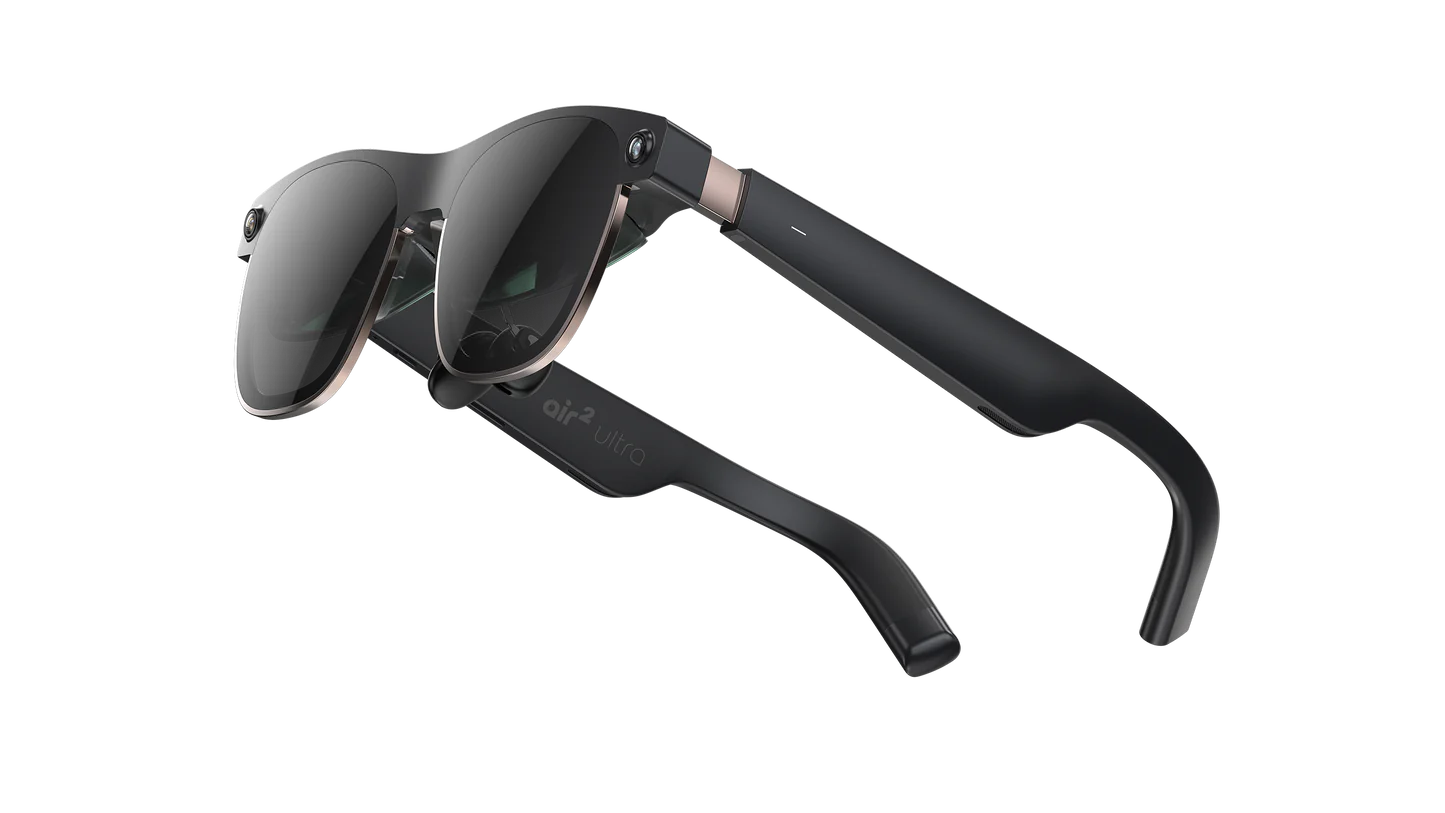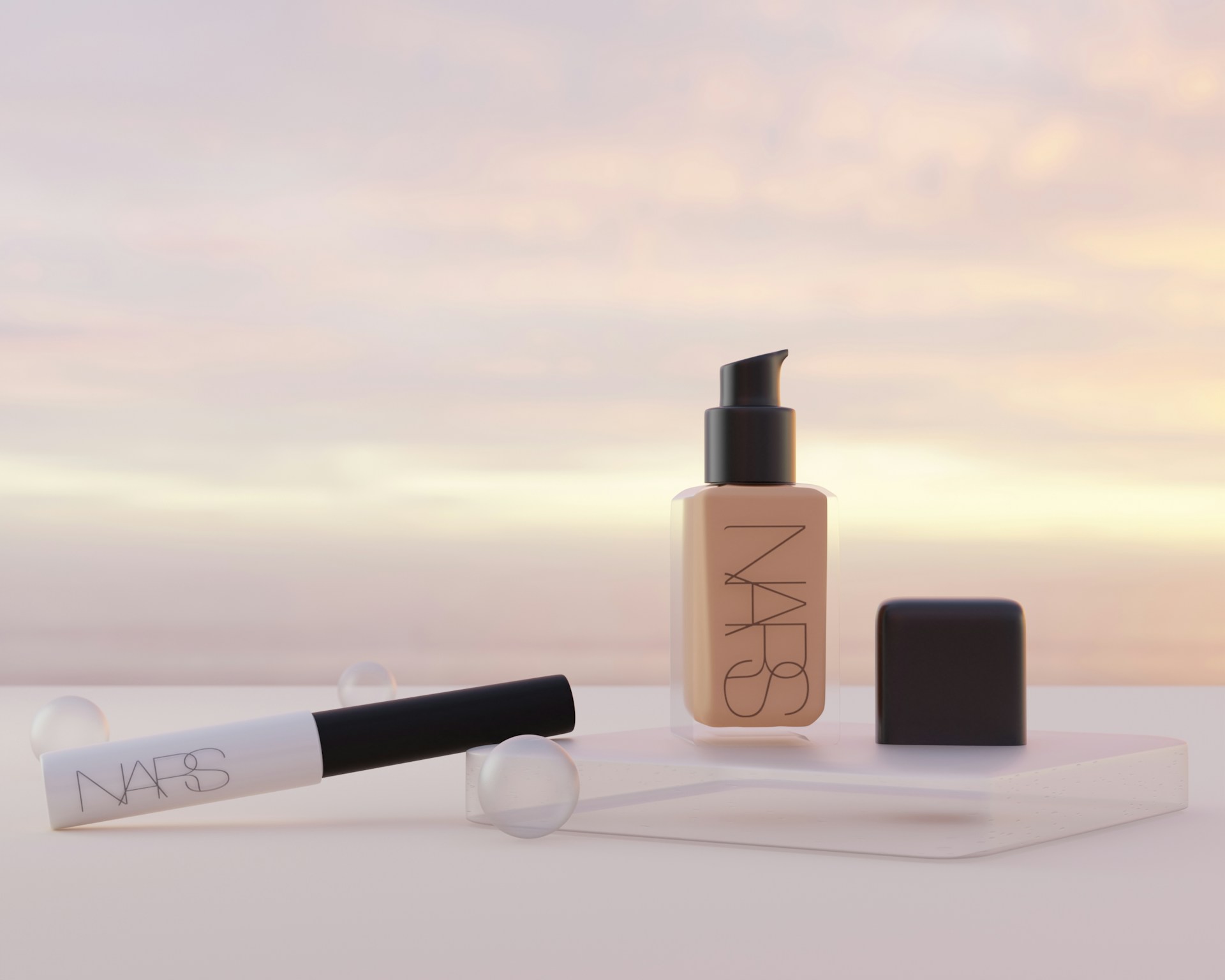Spatial computing is the next frontier of technology, where digital and physical worlds merge seamlessly. Imagine being able to access any app, program, or content on a pair of glasses that look just like regular shades. That’s what Xreal Air 2 Ultra promises to deliver, with its sleek design, powerful performance, and affordable price.
What is Xreal Air 2 Ultra?
Xreal Air 2 Ultra is the latest smart glasses from Xreal, a company that specializes in AR and VR devices. They are the improved version of the original Xreal 2, featuring advanced features such as:
- Integrated head and hand tracking, via two 3D cameras
- A durable titanium frame, with electrochromic dimming lenses
- Per-eye micro-OLED displays, with 1080p resolution and up to 120Hz refresh rate
- A Snapdragon processor, with 6GB of RAM and 128GB of storage
- A USB-C port, for connecting to compatible devices with video output
- A 3.5mm audio jack, for plugging in headphones or speakers
- A prescription lens frame, for users who need corrective lenses
How does Xreal Air 2 Ultra work?
Xreal Air 2 Ultra is not a standalone device, but an accessory that you connect to a device with USB-C video output, such as a laptop, phone, gaming handheld, etc. The glasses act as a secondary screen, where you can view any app or program that runs on your device. Depending on your preference, you can also switch between AR and VR modes.
In AR mode, you can see the real world around you, with digital overlays on top. You can use the glasses for various purposes, such as:
- Working in virtual spaces, with multiple windows and screens
- Watching a show, movie, or video, on a virtual screen of any size
- Playing games, with immersive graphics and sound
- Looking up information, with voice or gesture commands
- Navigating, with directions and maps
- Socializing, with video calls and avatars
In VR mode, you can immerse yourself in a virtual world, where you can interact with the environment and objects. You can use the glasses for various purposes, such as:
- Exploring, 360-degree videos and photos
- Learning, with educational apps and simulations
- Relaxing, with meditation and wellness apps
- Creating, with art and design tools
- Experiencing, with entertainment and storytelling apps
Why choose Xreal Air 2 Ultra?
Xreal Air 2 Ultra are the most promising VR/AR glasses yet, for several reasons:
- They are stylish and comfortable, unlike bulky and heavy VR headsets
- They are powerful and responsive, unlike low-quality and laggy AR glasses
- They are versatile and compatible, unlike limited and exclusive AR/VR devices
- They are affordable and accessible, unlike expensive and rare AR/VR devices
Xreal Air 2 Ultra is poised to be the best alternative to Apple Vision Pro and Meta Quest 3, the two other major players in the spatial computing market. While Apple Vision Pro is a wearable computer that offers a stunning VR experience, it is extremely costly, clunky, and incompatible with most apps. While Meta Quest 3 is a standalone headset that offers a decent AR/VR experience, it is still relatively heavy, intrusive, and dependent on Facebook.
Xreal Air 2 Ultra, on the other hand, is a pair of glasses that offer a fantastic AR/VR experience, without compromising on design, performance, or price. They are the future of spatial computing, and you can pre-order them now for $699, with an expected delivery date in March 2024. Don’t miss this opportunity to get your hands on the year’s most innovative and exciting device.
Technical Specifications
Here is a table that summarizes the technical specifications of Xreal Air 2 Ultra, based on the information from VRcompare.
| Specification | Value |
|---|---|
| Manufacturer | Xreal |
| Device Type | Phone-powered AR |
| Platform | Nebula |
| Announced | January 7, 2024 |
| Release Date | Unreleased |
| Retail Price | $699 |
| Optics | Birdbath optics |
| Ocularity | Binocular |
| IPD Range | Adjustable |
| Diopter | Prescription lens inserts are available |
| Passthrough | Native passthrough |
| Display Type | 2 x Micro OLED binocular |
| Peak Brightness | 500 nits |
| Resolution | 1920×1080 per-eye |
| Refresh Rate | 120 Hz |
| Image Visible FoV | 52° diagonal |
| Processor | Snapdragon |
| RAM | 6GB |
| Storage | 128GB |
| Port | USB-C |
| Audio Jack | 3.5mm |
| Weight | 80 g |
Comparison with other AR/VR devices
Here is a brief comparison of Xreal Air 2 Ultra with Apple Vision Pro and Meta Quest 3, based on the information from Tom’s Guide and Windows Central.
| Device | Xreal Air 2 Ultra | Apple Vision Pro | Meta Quest 3 |
|---|---|---|---|
| Design | Stylish and lightweight glasses | Futuristic and heavy goggles | Sleek and ergonomic headset |
| Display | 1080p per-eye, 120Hz, micro-OLED | 4K per-eye, 90-100Hz, micro-OLED | 1832×1920 per-eye, 90Hz, LCD |
| Tracking | Head and hand tracking via 3D cameras | Hand, eye, and face tracking via sensors | Head, hand, and eye tracking via cameras |
| Controllers | None, gesture-based | None, gesture-based | Touch controllers |
| Battery | Depends on the connected device | External battery pack, 2 hours | Internal battery, 2-3 hours |
| Connectivity | USB-C video output | Wi-Fi, Bluetooth, USB-C | Wi-Fi, Bluetooth, USB-C |
| Compatibility | Any device with USB-C video output | Apple devices and apps | Facebook account and apps |
| Price | $699 | $3,500 | $399 |
As you can see, Xreal Air 2 Ultra offers a more affordable, portable, and versatile AR/VR experience than the other two devices. They also have a higher resolution and refresh rate than the Meta Quest 3 and a more stylish and comfortable design than the Apple Vision Pro. They are the best choice for anyone who wants to enjoy the benefits of spatial computing without breaking the bank or compromising on quality.
If you are interested in Xreal Air 2 Ultra, you can pre-order them now from the official website or any authorized retailer. You can also sign up for the newsletter, to get the latest updates, news, and offers. Hurry up, because the stocks are limited, and the demand is high. Don’t miss this chance to be among the first to own the future of spatial computing. Order your Xreal Air 2 Ultra today, and get ready to experience a whole new level of immersion and interaction.
Check out more articles!









